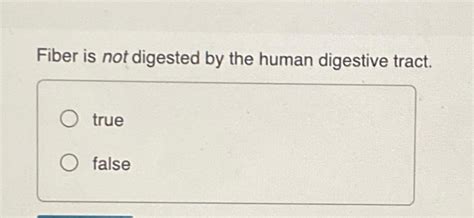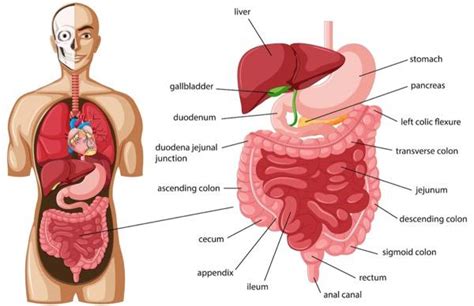What is the primary function of fiber in the human digestive system?

Often hailed as a cornerstone of a healthy diet, dietary fiber plays a profoundly significant and multifaceted role within the human digestive system. Far from merely being a filler, this indigestible component of plant foods is essential for maintaining optimal gastrointestinal function and overall well-being. Understanding its primary contributions sheds light on why adequate fiber intake is consistently recommended by health professionals.
What Exactly Is Dietary Fiber?
Dietary fiber refers to carbohydrates that the human body cannot digest or absorb. Unlike fats, proteins, or other carbohydrates that are broken down and utilized for energy, fiber passes relatively intact through the stomach, small intestine, and colon. It’s broadly categorized into two main types: soluble and insoluble, both of which contribute uniquely to the digestive process.
The Primary Role: Bolstering Digestive Regularity
The foremost function of fiber in the digestive system is to provide bulk and facilitate the smooth passage of food and waste through the gastrointestinal tract. Insoluble fiber, in particular, does not dissolve in water; instead, it adds significant bulk to stool. This increased mass stimulates the muscles in the intestinal walls to contract and push waste along more efficiently, preventing constipation and promoting regular bowel movements.

Insoluble Fiber: The Structural Supporter
Found in foods like whole grains, wheat bran, nuts, seeds, and the skins of many fruits and vegetables, insoluble fiber acts like a “scrub brush” for your intestines. By adding volume to the stool, it helps prevent diverticular disease and hemorrhoids, ensuring that waste material moves through the colon quickly and with less effort. This reduces the time harmful substances may remain in contact with the intestinal lining.
Soluble Fiber: The Gentle Gel-Former
Conversely, soluble fiber, found in oats, peas, beans, apples, citrus fruits, and carrots, dissolves in water to form a gel-like substance. This gel serves several purposes: it softens the stool, making it easier to pass, which can be beneficial for those suffering from diarrhea by slowing transit time. It also helps to absorb excess water in the intestines.

Beyond Bulk: Nurturing the Gut Microbiome
While often highlighted for its role in regularity, soluble fiber has another profound primary function: it acts as a prebiotic. As it passes undigested into the large intestine, it becomes a fermentable food source for the beneficial bacteria residing in the gut microbiome. These friendly bacteria break down (ferment) the soluble fiber, producing short-chain fatty acids (SCFAs) like butyrate.
These SCFAs are vital for gut health, providing energy for the cells lining the colon, reducing inflammation, and potentially playing a role in immune function and overall metabolic health. A robust and diverse gut microbiome, fostered by adequate fiber intake, is increasingly linked to numerous health benefits beyond digestion.

Other Key Contributions to Digestive Health
- Satiety: Fiber adds volume to food without adding many calories, contributing to feelings of fullness and aiding in weight management by reducing overall food intake.
- Blood Sugar Regulation: Soluble fiber slows down the absorption of sugar, which helps to prevent rapid spikes in blood glucose levels after meals, a crucial benefit for individuals with diabetes or those at risk.
- Cholesterol Management: Soluble fiber can bind to cholesterol particles in the digestive tract, preventing their absorption and helping to lower LDL (“bad”) cholesterol levels.

Conclusion
In summary, the primary function of fiber in the human digestive system is multi-faceted, revolving around promoting efficient and healthy bowel function. By adding bulk to stool, ensuring regularity, and nourishing the vital gut microbiome, fiber is indispensable for preventing digestive disorders and supporting overall gastrointestinal well-being. Ensuring a sufficient intake of both soluble and insoluble fiber through a balanced diet rich in fruits, vegetables, and whole grains is a fundamental step towards maintaining a healthy digestive system and a healthier you.









